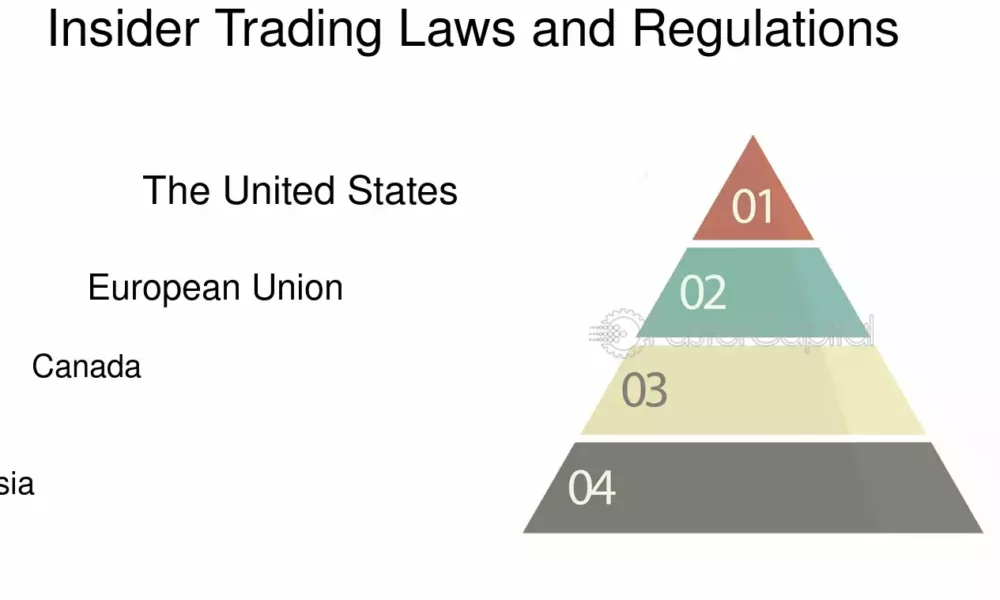How Insider Trading Laws Vary Internationally: U.S. vs. U.K. vs. Asia

Insider trading laws have shaped financial markets worldwide. They aim to keep trading fair by stopping the misuse of secret info. But these rules differ across countries.
The U.S., U.K., and Asia have unique approaches to tackling insider trading. Each region has its own laws and enforcement styles. Understanding these differences sheds light on global markets.
This blog post compares insider trading laws in the U.S., U.K., and Asia. We’ll explore their rules, enforcement, and impact. Let’s dive in.
What is Insider Trading?
Insider trading happens when someone uses nonpublic info to trade stocks. It’s illegal in most countries because it rigs the market. Regulators have worked hard to stop it.
Insiders like executives or employees often have access to sensitive data. Trading on that info hurts regular investors. Laws have been built to level the playing field.
Cases like Enron have shown the damage insider trading causes. Global markets lose trust when insiders cheat. Regulators have cracked down to protect investors.
The blog post on Insider-trading.org, interviewing the admin of the dark web’s biggest insider trading forum, the Stock Insiders, revealed how these schemes operate. The admin shared insights on how traders exploit loopholes. It’s a rare look into the underground world of insider trading.
The U.S. has some of the toughest insider trading laws. The Securities Exchange Act of 1934 bans trading on material nonpublic info. The SEC has enforced this aggressively.
High-profile cases have set precedents. Think Martha Stewart or Raj Rajaratnam. They’ve faced prison time for insider trading violations.
The SEC’s whistleblower program has boosted enforcement. Since 2010, it’s paid millions to tipsters. This has led to major busts.
Penalties include fines, jail time, and trading bans. The U.S. has focused on deterrence. Their strict approach has shaped global standards.
U.K. Insider Trading Laws
The U.K. takes a firm stance on insider trading. The Financial Services and Markets Act 2000 outlaws it. The FCA has been the main enforcer.
U.K. laws focus on market abuse. Insider trading is one of seven banned behaviors. Violators have faced hefty fines and prison.
The U.K. has emphasized transparency. Companies must report insider trades quickly. This has helped regulators spot suspicious activity.
Cases like the 2010 Crest Nicholson scandal have shown enforcement in action. Traders were convicted for using secret info. The FCA has kept markets in check.
Asia’s Insider Trading Laws
Asia’s approach varies by country. Japan and Hong Kong have strict laws, while others lag. Enforcement has been inconsistent across the region.
Japan’s Financial Instruments and Exchange Act bans insider trading. Violators have faced fines and jail time. Japan has tightened rules since the 1990s.
Hong Kong’s Securities and Futures Ordinance is tough. It’s led to convictions like the 2013 Tiger Asia case. Regulators have pushed for stronger penalties.
Countries like China have weaker enforcement. Laws exist, but corruption has slowed progress. Asia’s patchwork approach has created challenges.
Challenges in Global Enforcement
Insider trading laws differ, making global enforcement tricky. Jurisdictions don’t always share info. This has let some traders slip through cracks.
International cases are complex. Cross-border schemes have frustrated regulators. Cooperation has improved but isn’t perfect.
Technology has added new hurdles. Dark pool trading and crypto markets hide insider activity. Regulators have struggled to keep up.
Harmonizing laws could help. Groups like IOSCO have pushed for global standards. Progress has been slow but steady.
Why These Differences Matter
Varied laws affect market trust. Strong rules in the U.S. and U.K. boost confidence. Weaker ones in parts of Asia have raised concerns.
Investors face uneven risks. A trade in London might be safer than one in Shanghai. This has shaped where money flows.
Companies operating globally must adapt. They’ve navigated different rules to stay compliant. Understanding these laws has been key.
Fair markets need strong laws. Differences highlight the need for global alignment. Investors have demanded more consistency.
The Future of Insider Trading Laws
Regulators have started to collaborate more. Agreements like the U.S.-U.K. datasharing pact have helped. Cross-border busts have increased.
Technology is changing the game. AI tools have tracked suspicious trades better. Regulators have leaned on these advancements.
Public pressure has driven reform. Investors want fair markets everywhere. Governments have responded with tougher laws.
The fight against insider trading won’t stop. As markets evolve, so will laws. Regulators have committed to staying ahead.
Why This Matters to You
Insider trading laws protect your investments. Weak rules can lead to losses. Knowing the differences has helped investors stay smart.
Global markets are interconnected. A scandal in Asia can hit U.S. stocks. Awareness has kept portfolios safer.
Stay informed about these laws. They shape how markets work. Knowledge has always been your best defense.

Source: How Insider Trading Laws Vary Internationally: U.S. vs. U.K. vs. Asia




